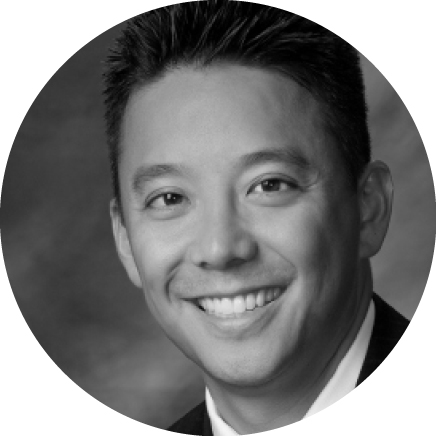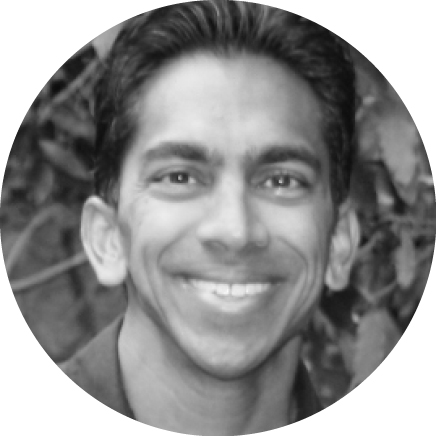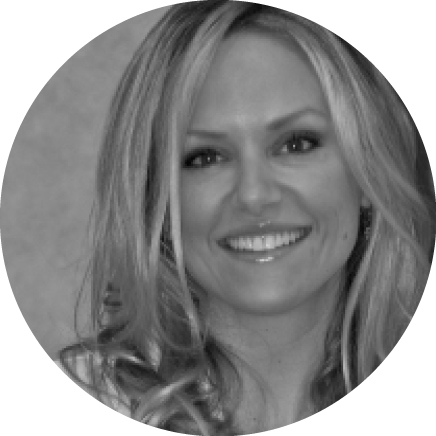
Quentin B. Allen, MD
Starting my first job after residency was full of new experiences. I definitely was not prepared for the moment when a patient asked me how many surgical procedures I had performed similar to the one I was proposing to perform on them! Fortunately, most patients were really gracious and understanding and felt comfortable as long as I seemed confident in my surgical plan for them. Being confident, but not overconfident, is an important part of a newly trained surgeon establishing him- or herself.

Preeya Gupta, MD
Medical training is a funny thing. We spend so many years being the student, trying to learn as much as we can. We are almost “institutionalized”—so used to having someone there to make sure we are doing the right thing. And then one day, you wake up all on your own.
I remember finishing fellowship and feeling like I had really accomplished something. I was confident in my ability to treat a variety of medical and surgical conditions. I was used to seeing the “train wrecks” and welcomed a challenge. I still feel that way, but if you ask me what the scariest thing was about starting my first job after training, it was by far knowing that “the buck stopped with me.” It was my opinion that mattered, and trying to wrap my head around that was a shift in thinking. Thankfully, all of these thoughts are fleeting, and we all quickly adapt and transform ourselves. Having supportive mentors and trusting yourself resurrects the confidence that is omnipresent. My best advice to the newly graduated trainee is to trust yourself.

Mitch Jackson, MD
Starting out, the fear factor was powerful, as I had decided to start my own private practice the day my training ended. I faced multiple challenges that I had to balance with my last year of ophthalmology training: picking a practice location, planning a build-out, obtaining the necessary funding, preparing for board exams, and finishing my training. The good news was that I selected a location to practice only 1 hour away from my training program, so I had access to the site during the planning phase on the weekends I didn’t have to take call. Twenty-one years later, I am happy I decided to take that fearful approach after I completed my training. In the end, careful and strategic planning is needed, and accounting for all aspects of funding, including EHR expenses, is crucial.

Paul Kang, MD
After my residency and fellowship training, I felt as though I was ready to start my practice. My head was full of information, my clinical and surgical skills were sharp, and I believed I was ready to be on my own. However, the biggest hurdle to beginning my practice was my limited knowledge about coding and billing. I had a peripheral and cursory knowledge of the importance of billing and coding, but I did not truly appreciate the complexities and nuances. The rules seemed to change on an annual basis, and the documentation requirements seemed (and still seem) unessential to my ability to deliver excellent care. Nevertheless, all of these items are unavoidable elements of having a successful practice. My patients, practice administration, insurance companies, and billing company ultimately deferred to my decisions regarding what to bill and how to code, and I was ultimately responsible for the outcome.
I had to quickly learn the difference between health insurance and vision plans and what is a covered service. Many questions arose, such as when are routine eye exams covered, and when are glasses, contacts, and LASIK covered? How do health savings accounts work, and how do I address the billing of premium IOLs into cataract practice? I found that having a thorough understanding of all of these types of issues and being able to effectively convey them to patients is just as important as having an accurate diagnosis and treatment plan. Ultimately, the goal is to have healthy, happy, and satisfied patients. Learning how to bill and code was a daunting task, but nevertheless an important one.

Szilárd Kiss, MD
The first year after completing my vitreoretinal surgical fellowship was perhaps the most demanding thus far in my professional career. As a trainee, there was always someone to look up to, someone to ask questions to, and someone to guide you. As an attending, everything really rests on your shoulders. There is a greater sense of ownership over your patients, who you hope will be part of your practice for years to come. In my experience, the common diagnoses (eg, age-related macular degeneration and diabetic macular edema) and treatment paradigms were stress-free and easy to handle. It was the fascinomas (the so-called zebras) and the second opinions—which combined account for more than 30% of my academic practice—that were the toughest challenge.
Additionally, in the operating room, it was also somewhat difficult to fully comprehend that although my success rate for retinal reattachment, for example, was better than the reported averages, there are retinas that just keep on redetaching no matter how skilled a surgeon you are. My advice to residents and fellows graduating from our program is two-fold. First, never be afraid to ask a trusted colleague for help with a difficult patient (a corollary to that would be to always recommend that a patient get a second opinion if you or the patient is unsure of a diagnosis or treatment). Second, there are two kinds of surgeons who don’t have complications—those who don’t do surgery and those who lie.

Mihir Parikh, MD
After finishing a 1-year transitional internship in internal medicine at the legendary Bellevue Hospital, I felt I could “keep a rock alive.” I was well trained and had a diverse range of skills. So, despite finishing my ophthalmology residency and fellowship training, which significantly narrows your range of focus, I still felt I could very comfortably evaluate and treat the entire body. Early in my career, I equated that to being a “good” doctor.
In my first year of private practice, a patient was bothered with pain upon swallowing a few weeks after her LASIK surgery. She asked if I could take a look in her mouth and possibly prescribe a treatment. Having done 3 years of residency at the New York Eye and Ear Infirmary, I was rather confident in my head and neck skills, so I obliged. Using a muscle light, I asked her to open her mouth. After a good look, I proudly diagnosed she had inflamed tonsils and needed some aggressive conservative therapy, and she would be healed in a few days. I even added a prescription medication in the event the symptoms did not resolve within that time. After a long pause, she politely told me that my findings could not be possible because she had undergone a tonsillectomy a few years earlier.
That day, I realized that I needed to set my sights on being a good doctor of the anterior segment of the eye.

Katherine Whipple, MD
What if I have a terrible complication? What if I miss a diagnosis, and a patient goes blind? These are things you think you fear most before you start your first job. Although these catastrophes do happen to a select few, that’s just it … they happen to a select few. Stop being ridiculous; you are wasting time. You dedicated years to becoming an expert in the eye. Put your big girl (or boy) panties on and jump in.
Having started my first job 4 months ago, what I found to ACTUALLY be the scariest part was the fear of not being liked. I knew the partners of practice supported me and that my patients liked me, but I really wanted everyone to like me, including all of the staff members. However, they were very comfortable doing their usual job, and I was bringing in a whole new specialty (oculoplastics). Therefore, any suggestion I had was disregarded. Not wanting to create waves, I kept quiet. After all, I was the new girl. Then the person selected to sell my skincare line was the last person in the office I would have chosen. Not wanting to complain, I convinced myself, “It’s OK, I can make this work.” Next, someone who I had never met and who did not understood my specialty designed a print ad for me, which was inaccurate and embarrassing. Finally, meetings were being scheduled for me during my lunch break. Although I was happy to work through lunch, I would arrive at the meeting and find no one but me was prepared. Therefore, my only free minutes in a busy clinic day were wasted.
It quickly became apparent it was time to confront my fear of not being Miss Popular. Up until this point in my career, the rules were set by my attendings. It was now time to set my own rules. I reassigned skincare sales to the most fit person in the office. I canceled the print ad, hired an agency in tune with my vision, and was able to produce a kickass ad. Finally, I informed the staff of exactly what I expected before any meeting was to be held again. While it was scary, it was also very liberating.
Before you start your first job, realize that work is business and not a popularity contest, and people will take advantage of you if you let them. If people call you bossy or a witch or anything that rhymes with witch, embrace it. To me, these words have become synonymous with driven and efficient, which are qualities to be proud of. Congratulations, you finally have all the skills and education you need. Do not be afraid to create the vision you have in your head, even if it ruffles a few feathers along the way.


